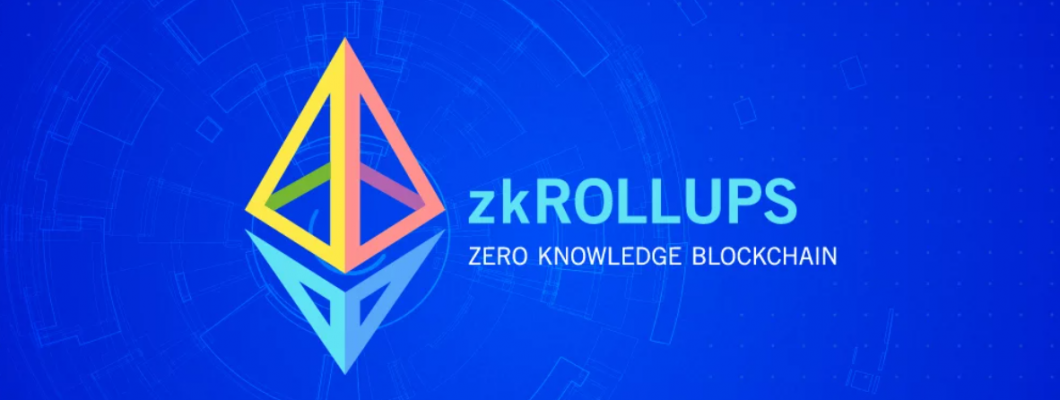
Blockchain adoption has skyrocketed, but scalability remains a significant challenge. High gas fees and slow transaction speeds limit mainstream adoption. Layer 2 solutions like zk-Rollups are changing the game by using zero-knowledge proofs to enable fast, secure, and low-cost transactions.
In this blog, we’ll explore zk-Rollups, how they work, and why they’re a breakthrough for blockchain scalability.
What Are zk-Rollups?
Zk-Rollups (Zero-Knowledge Rollups) are Layer 2 scaling solutions that batch multiple transactions off-chain and submit a single proof to the main blockchain.
This significantly reduces the load on Layer 1 blockchains like Ethereum, lowering gas fees while maintaining security and decentralization.
How zk-Rollups Work
Batch Transactions Off-Chain – Multiple transactions are grouped.
Generate a Zero-Knowledge Proof – A cryptographic proof confirms the batch’s validity without revealing individual transaction details.
Submit Proof to Layer 1 – The main blockchain verifies the proof and finalizes transactions efficiently.
✅ Key Benefit: Instead of verifying every transaction, Ethereum only verifies the zk-proof, making the process much faster and cheaper.
Why zk-Rollups Matter for Blockchain Scaling
1. Massive Reduction in Gas Fees
Traditional Ethereum transactions can be costly, especially during network congestion.
zk-Rollups compress thousands of transactions, dramatically lowering gas fees.
2. Instant Finality & Faster Transactions
Unlike Optimistic Rollups, which require a fraud-proof challenge period, zk-Rollups instantly validate transactions with cryptographic proofs.
3. Enhanced Security with Zero-Knowledge Proofs
Since transactions are validated using mathematical proofs, zk-Rollups inherit Ethereum’s security model, ensuring trustless execution.
4. Scalability for Mass Adoption
Ethereum currently handles 15-30 TPS (Transactions Per Second).
zk-Rollups can scale to thousands of TPS, enabling mainstream adoption of DeFi, NFTs, and gaming applications.
Top zk-Rollup Projects Leading the Space
1. zkSync
Developed by Matter Labs, zkSync is a user-friendly zk-Rollup that offers near-instant transactions and ultra-low fees.
Supports smart contracts and aims for Ethereum compatibility.
Ideal for DeFi apps, payments, and NFT marketplaces.
2. StarkNet
Developed by StarkWare, StarkNet is a powerful general-purpose zk-Rollup.
Uses STARK proofs for improved security and scalability.
Designed for high-performance dApps and gaming platforms.
3. Polygon zkEVM
Developed by Polygon, this zk-Rollup is Ethereum-compatible and supports smart contracts.
Enables seamless migration of existing dApps to a scalable environment.
4. Loopring
A zk-Rollup optimized for decentralized exchanges (DEXs).
Offers low-cost, high-speed trading while maintaining self-custody.
zk-Rollups vs. Optimistic Rollups: Which is Better?
Challenges & Future of zk-Rollups
While zk-Rollups offer game-changing scalability, some challenges remain:
Complex Development – Zero-knowledge cryptography is highly technical.
High Computation Costs – Generating zk-proofs requires significant processing power.
Limited Smart Contract Support – Some zk-Rollups (like zkSync) are still optimizing Ethereum compatibility.
However, with projects like zkSync, StarkNet, and Polygon zkEVM pushing innovation, zk-Rollups are set to become the dominant Ethereum scaling solution in the coming years.
Conclusion:
Zero-knowledge rollups are a breakthrough technology that enables faster, cheaper, and more secure transactions.
✅ Lower Gas Fees
✅ Instant Transaction Finality
✅ Ethereum-Level Security
✅ Scalability for Mass Adoption
With major blockchain projects adopting zk-Rollups, we’re moving towards a future where Ethereum can scale to millions of users without congestion issues.

Leave a Comment